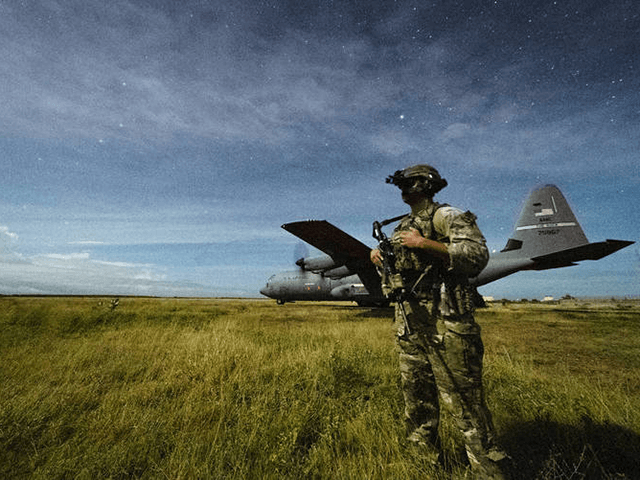U.S. Africa Command (AFRICOM) announced on Sunday that the United States has effectively completed “repositioning” troops from Somalia in accordance with a directive issued by President Donald Trump in December.
According to an AFRICOM spokesman, only a “very limited” U.S. military presence remains in Somalia.
In early December, President Trump ordered the withdrawal of nearly all American troops from Somalia by January 15. The Pentagon said much of the U.S. presence would be redeployed to neighboring countries and would still be capable of conducting cross-border operations into Somalia as needed.
AFRICOM spokesman Col. Christopher P. Karns told Voice of America News (VOA) on Sunday that while he could not discuss the specifics of “roles, responsibilities, locations, or the very limited remaining U.S. presence for force protection and operational reasons,” he stated President Trump’s directive regarding Somalia “has been carried out.”
Karns said he could not disclose where U.S. forces have been relocated to, citing the need to protect “ongoing operations.” He said the U.S. remains engaged with Somali security forces and is still “fixed and focused” on al-Shabaab, the largest and most dangerous militant group in Somalia.
“It would not be wise for them to test us,” he said.
AFRICOM’s commander, U.S. Army Gen. Stephen Townsend, struck a similar note in his statement about the “directed re-positioning” of American forces in December: “We remain committed to helping our African partners build a more secure future. We also remain capable of striking al-Shabaab at the time and place of our choosing – they should not test us.”
“AFRICOM said the repositioning was finished a couple of days early while still applying pressure to al-Shabaab in the process. On January 13, the day of the completion, AFRICOM reported the third airstrike against al-Shabaab this year. The strike in the vicinity of Buulo Falaay in the Bay region killed one al-Shabaab member and destroyed a compound, according to AFRICOM,” VOA noted.
A week before that, U.S. forces working with the Somali National Army killed five senior al-Shabaab leaders in a joint airstrike. One of the targets was “suspected of being involved in a previous attack against the U.S. and Somali forces,” according to a U.S. military spokesman. Somalia’s army chief, Gen. Odowa Yusuf Rage, said eight top al-Shabaab leaders were killed in the operation.
Al-Shabaab, an ally of al-Qaeda, remains capable of both major attacks and small-scale atrocities in Somalia and neighboring countries. Last week, the International Christian Concern (ICC) reported that al-Shabaab gangs are “regularly targeting Christians” on both sides of the border with Kenya. Al-Shabaab terrorists have a habit of intercepting buses, robbing the passengers, and attempting to execute any Christians they find.
Al-Shabaab also continues to deploy suicide bombers, including a suicide bombing in Mogadishu on January 2 that killed at least five people.
On January 4, al-Shabaab released a propaganda video celebrating the one-year anniversary of an attack on a Kenyan military base where U.S. troops were stationed. The video named five militants responsible for the attack and noted only two of them were Somali nationals, the others having been recruited from Yemen, Tanzania, and Ethiopia.
The Washington Post reported in December that Somali security officials are worried not just about the threat of attack by al-Shabaab or other militant groups, but by the possibility of political interference from within Somalia’s factionalized government after the U.S. leaves.
“If the government ever tried to interfere with Danab for political nonsense, the Americans were the ones who said: ‘Hey, stop it.’ That was the condition the Americans attached when they started training us, that we’d be apolitical. Without that, our defense mechanism toward our own government doesn’t exist,” a former commander of Danab, the Somali security force supported and trained by the United States, told the Washington Post.
“I don’t trust our politicians, just like most people in Somalia don’t,” another Danab officer said.
The Associated Press noted that Col. Karns refused to “speculate or engage in hypotheticals” when asked if the Biden administration might reverse the withdrawal from Somalia.

COMMENTS
Please let us know if you're having issues with commenting.